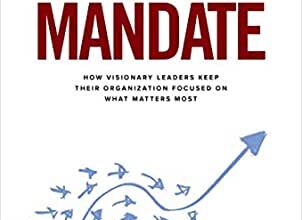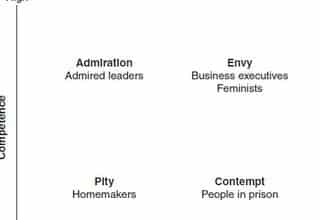Leaders play many roles. In just a day they can be a problem solver, a project manager, a strategist, a teacher, and even a disciplinarian. But one responsibility that does not get enough attention is the leader’s responsibility to serve as a peacemaker. This was recently exemplified by comedian and future United Nations negotiator Patton Oswalt.
A few months ago, actor David Harbour was officially announced as the star of the new Hellboy movie franchise, replacing the star of the previous two films, Ron Perlman. Being supplanted often leads to bad blood, something Harbour wanted to avoid. To get ahead of any potential issues, he reached out to Oswalt who then conducted a “summit dinner” between the two actors.
“Patton brokered a peace, it was incredible,” Harbour said. “I had reached out to Ron because I’m a big fan of his. He’s a really sweet guy and we wanted to just talk shop, and I just thought Patton Oswalt would be the perfect chaperone in case Ron and I started to make out or we started dancing too close or if we started getting in a fistfight.” Perlman responded via Facebook with an equally cordial sentiment.
As Oswalt demonstrated, a leader’s chief duty is it to address interpersonal problems before they develop. Sure, Perlman could have vented his grievances to the National Enquirer. Then Harbour could have responded with an insulting slight. And this media circus could have culminated with Oswalt attempting to get them together to resolve the feud. However, by this point, he would have been dealing with two disgruntled men harboring bruised egos and deep-seeded resentment. Instead, Oswalt identified a situation and brokered a peace treaty before peace was even in peril.
There are a few lessons leaders can learn from this episode.
Be proactive. Don’t wait for the problem. Make the first move. When you see something, say something.
Organize a summit. Get the potentially disputing parties together to talk it out.
Facilitate. Referee the discussion to direct the conversation and to avoid unnecessary escalation.
Find common ground. Let both sides say their piece and identify parallels.
End it on a positive note. Your summit should conclude with a shared understanding and a united message.
Whether you are making a movie, drafting a peace accord, or bringing two co-workers together for a mea culpa, you are accountable for the climate of your workplace. You can react to culture killing troubles as they arise OR you can address them while they are still minor inconveniences. I prefer the latter…who needs the hassle.








